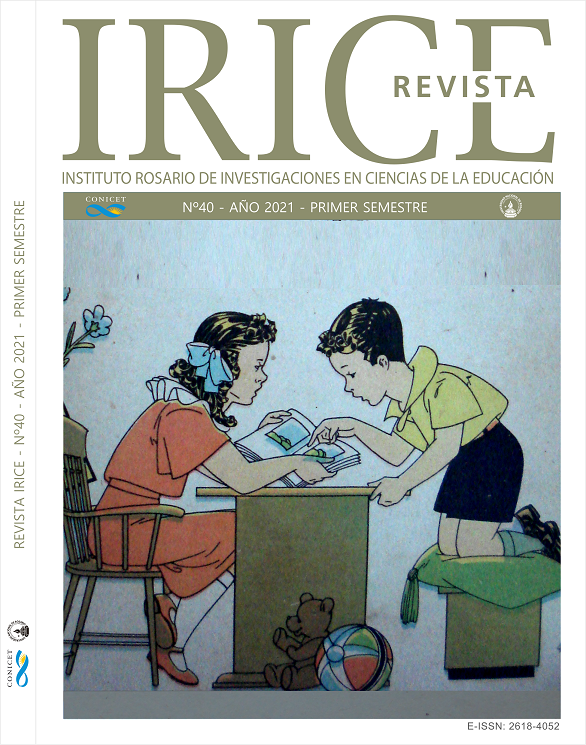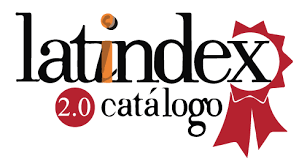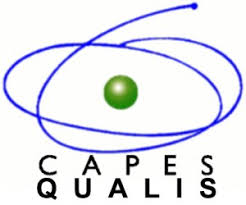El concepto de Transversalidad y su contribución a la educación
DOI:
https://doi.org/10.35305/revistairice.vi40.1282Palavras-chave:
transversalidad, transdisciplinariedad, currículo, formación, modelo de formaciónResumo
Este artículo trata del concepto de transversalidad. En él se analiza el carácter complejo de su significado y se define su importancia en relación con la manera en la que ha transformado el pensamiento unitario de las disciplinas, pero también, la forma como sirve para pensar y redimensionar el currículo y una diversidad de problemas de la humanidad. Además, se examina sus fines educativos y el papel que juega en la construcción de nuevos modelos de formación. El artículo está dividido en cuatro secciones. La primera sección plantea aspectos relacionados con la procedencia del concepto; en este sentido se examina la producción intelectual que constituye la infraestructura conceptual de la transversalidad. En la segunda sección se describen las fuentes, bases, orientaciones o enfoques que han permitido elaborar la conceptualización de la transversalidad. La tercera sección discute la construcción del concepto que integra las bases y orientaciones elaboradas a partir de diferentes fuentes. Finalmente, se presentan las conclusiones, en las cuales se muestra la importancia de hacer de la transversalidad el principio fundante de modelos formativos. Esta propuesta es crucial para orientar investigaciones que favorezcan una nueva cultura formativa y una nueva visión del aprendizaje como fuente de todo propósito social individual o colectivo. La articulación entre transversalidad y modelo formativo es crucial para reconceptualizar no solo el currículo como medio de formación.
Downloads
Referências
Bauman, Z. (2001). La globalización: consecuencias humanas. Ciudad de México: Fondo de Cultura Económica.
Bermejo, D. (2005). Posmodernidad, pluralidad y transversalidad. Barcelona: Anthropos Editorial.
Bernstein, B. (1977). Classification and Framing of Educational Knowledge. En B. Bernstein, Class, Codes and Control (Vol. 1, pp. 202-230). London: Routledge and Kegan Paul.
Bernstein, B. (1998). Pedagogía, control simbólico e identidad. Madrid: Ediciones Morata.
Catalán, J. R. (2008). Boaventura de Sousa Santos: El ineludible compromiso de la razón postmoderna. Revista Realidad, 116, 247-304. https://doi.org/10.5377/realidad.v0i116.3378
Deleuze, G., & Guattari, F. (1988). Mil mesetas. Capitalismo y Esquizofrenia. Paris: Editorial Pretextos.
Deleuze, G., & Guattari, F. (1993). ¿Qué es la filosofía? Barcelona: Editorial Anagrama.
Dogan, M. (1997). Las nuevas ciencias sociales: grietas en las murallas de las disciplinas. Revista Internacional de Ciencias Sociales, 153, 1-12.
Fernández de Castro, P. (2012). El camino hacia la transversalidad de género, el empoderamiento y la corresponsabilidad en las políticas de igualdad de género. Revista de Filosofía, Derecho y Política, 16, 79-104. Recuperado de https://e-archivo.uc3m.es/handle/10016/15198
Foucault, M. (1972). La Arqueología del Saber. México: Siglo XXI Editores.
Gavidia Catalán, V. (2001). La transversalidad y la escuela promotora de salud. Revista Española de Salud Pública, 75, 505-516.
Gibbons, M. (1998). Pertinencia de la educación superior en el siglo XXI. Recuperado de https://www.fceia.unr.edu.ar/geii/maestria/2013/ADOLFO%20STUBRIN/BIBLIOGRAF%C3%8DA%202013/
Giddens, A. (1993). Consecuencias de la modernidad. Madrid: Alianza Editorial.
Harvey, D. (1990). La condición de la postmodernidad. Buenos Aires: Amorrortu Editorial.
Ianni, O. (2004). La era del globalismo. México: Siglo XXI Editores.
Lyotard, F. (1987). La condición postmoderna. Informe sobre el saber. Madrid: Ediciones Cátedra.
Moreno Bayardo, M. G. (2005). Potenciar la educación. Un currículum transversal de formación para la investigación. REICE. Revista Iberoamericana sobre Calidad, Eficacia y Cambio en Educación, 3(1), 520-540.
Nicolescu, B. (1999). La Transdisciplinariedad. Manifiesto. París: Ediciones Du Rocher
Ohmae, K. (2012). El próximo escenario global. Desafíos y oportunidades en un mundo sin fronteras. Bogotá: Editorial Norma.
Pöppel, H. (2001). La razón transversal. La posición de Wolfgang Welsch en el enfrentamiento entre modernidad y postmodernidad. Estudios de Filosofía, 24, 33-50. Recuperado de https://revistas.udea.edu.co/index.php/estudios_de_filosofia/article/view/335659
Pryor, A. (2014). The God Who Lives Investigating the Emergence of Life and the Doctrine of God. New York: Pickwick Publications.
Saur, D. (2013). Entrevista a Rosa Nidia Buenfil Burgos. Eclecticismo y transversalidad en la investigación educativa. Propuesta Educativa, 39, 5-12. Recuperado de http://propuestaeducativa.flacso.org.ar/wp-content/uploads/2019/12/REVISTA39_entrevista.pdf
Schrag, C. O. (1994). Transversal Rationality. En T. J. Stapleton (Ed.), The question hermeneutics (pp. 61-78). Dordrecht: Kluwer Academic Publishers,
Taylor, M. C. (2009). End the University as We Know It. The New York Times, 27, A23.
Terán Contreras, J. M., & Bolívar Espinoza, G. A. (2013). Derecho económico y justicia. Positivismo, neoclasicismo y transversalidad de las ciencias sociales. Alegatos. Revista Jurídica de la Universidad Autónoma Metropolitana, 84, 385-410. Recuperado de http://alegatos.azc.uam.mx/index.php/ra/article/view/148
Toledo Rubio, M. A. (2016). La transdisciplina en la investigación del diseño, En C. P. Villagómez & J. C. Saldaña Hernández (Comps.), La transdisciplina en el arte y el diseño (pp. 93-110). Guanajuato: Universidad de Guanajuato.
Welsch, W. (2000). Reason: traditional and contemporary. International Philosophy Today, 4, 65-78.
Downloads
Publicado
Como Citar
Edição
Seção
Licença
Copyright (c) 2021 Deicy correa mosquera, Isabel Guzmán Ibarra, Rigoberto Marín Uribe

Este trabalho está licenciado sob uma licença Creative Commons Attribution-NonCommercial-ShareAlike 4.0 International License.
Aqueles autores/as que tenham publicações nesta revista aceitam os seguintes termos:
Os autores/as conservarão seus direitos autorais e garantirão à revista o direito de primeira publicação de sua obra, a qual estará simultaneamente sujeita à Licença Creative Commons Atribuição-NãoComercial-CompartilhamentoIgual 4.0.
Os autores/as poderão firmar outros acordos de licença de distribuição não exclusiva da versão da obra publicada (por exemplo: depositá-la em um repositório institucional ou publicá-la em um volume monográfico), desde que seja indicada a publicação inicial nesta revista.
É permitido e recomendado aos autores/as divulgar sua obra na Internet (por exemplo: em repositórios institucionais ou em sua página pessoal) antes e durante o processo de submissão, o que pode gerar intercâmbios interessantes e aumentar as citações da obra publicada. (Veja O efeito do acesso aberto).





















